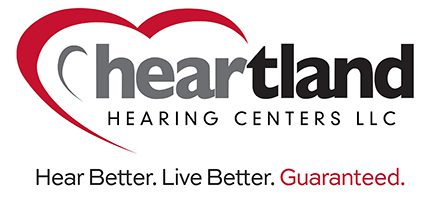Why do hearing aid costs seem so high, and how do I get the best buy?
There are several reasons hearing aid costs seem high. I will try to shed some light on the cost versus value for correcting your hearing. I will discuss 3 distinct areas to help bring some perspective.
1st. When Medicare was being formed, the American Medical Association partnered with Congress to developing the strategies and defining benefits for the Medicare system. Although your dentist, chiropractor, optometrist, and audiologist may have the title of Doctor in their field, the AMA and Congress eliminated these professions because they were not part of the AMA or physicians. So, as Americans, we can get some exotic surgeries, but not help for our eyes, ears, and teeth because they are not part of the AMA who controlled Congress. There are some attempting to add these benefits to Medicare, but at best it is a long way off because of current funding from the federal government. Unfortunately, the current environment is more about cutting than adding.
2nd. Research and Development or R&D for short is another reason hearing aid prices seem high. With the advent of the digital age in audiology, the manufacturing cost to design a new hearing aid from concept to market runs between $85 million and $200 million. There are really only six major manufacturers in the world. They operate under different name plates with digital chips and software production. The other manufactures are actually just assemblers. There used to be thousands of manufacturers across the world, but the cost of business and R&D became too much for most. The FDA requirements for approval of new technology are burdensome, time consuming by years, and extremely expensive. What that means for you and me is that technology is fantastic and growing, but for that to continue, the cost of development and approval has to be met or no one will invest in the R&D. This is a much larger subject than I can present here, but hopefully you get an idea on the expense side for the manufacturers.
3rd. Your professional and their practice. Hopefully, you have a professional working with you on your hearing health and not just a person or box store selling hearing aids. Hearing is not a commodity you just buy. That approach is usually unsuccessful at best and has been a major reason why only 20% of those needing to correct their hearing are doing so. That means 80% of the people who need help don’t seek it, and they and their love ones suffer the silent pain of hearing loss in their lives! Those 80% often don’t recognize the damage untreated hearing loss is causing them and those close to them.
There are two main reasons that it is extremely seldom that just buying a hearing aid without further care will work for the purchaser.
First, it’s not just about the ears. It’s also about the brain and the signal you are sending it. Have you ever put someone else’s glasses on and tried to see clearly? How did that work for you? It was most likely blurry, right? Just like you need an individual prescription for your eyeglasses, you need your individual prescription for your ears. Plus, since hearing ability is often lost gradually and people don’t often take steps to correct it for many years, over time your brain forgets some of the signals that it used to receive from your ears. Getting it all back at once can be uncomfortable and unproductive because your brain can no longer process those signals. To make regaining your hearing ability more effective, rehabilitation is the next step. This usually takes 3 to 6 weeks of working with your hearing professional to gradually work up to your full prescription. It’s not just about hearing more sounds, that’s easy. It’s about processing the signals and your ability to understand speech in quiet and noise. That requires a quality professional trained in aural rehab to help you recover as much as possible.
The second reason just purchasing a hearing aid from a big box store isn’t a quality option is that most hearing professionals practice bundling services. That means the cost of the hearing instrument you selected, the professional fees for the exam, the fitting, fitting rehab follow-ups, and quarterly check-ups and wax management are factored in, and that determines the bundled price. Usually, a bundled price is based upon 5 years of service. This way, you have a hard figure of your total expenditure and can budget accordingly. The hearing professional assumes some risk, but doesn’t have to constantly bill for every service rendered. Some practices are beginning to unbundle the prices to present a lower hearing aid price to appear more competitive. Lower prices sound great, but the ongoing care you will be losing can very negatively affect your success rate. When you just buy a hearing aid and only visit a hearing professional when you feel like something is wrong, you will often find excuses not to visit your professional for the fitting rehab follow-ups and quarterly check-ups you need to have the most beneficial results. We all do it. Life gets busy, and we put things off. But just like you can’t tell what your blood pressure is without a test, you can’t tell what your hearing and understanding level is without your hearing professional.
So, how can you reduce the cost of your hearing instruments and still get what you need?
Ask your hearing professional for their recommendation. Listen to them and ask questions. They are there to help you. Current technology is doubling about every year, but that doesn’t mean you need the latest and greatest available. Usually, you can go back about two generations of technology and still meet your needs effectively. For manufacturers, once they cover their R&D cost the product cost greatly reduces when the next greatest thing becomes available. So ask about those options. If you have a need but don’t have the budget, something is better than nothing. Your brain needs the help, and the old saying “if you don’t use it, you will lose it” is true in hearing. So start where you can.
If your hearing professional refuses to help you in your journey, LEAVE. It’s not where you start but how soon and progressing toward the final destination of hearing your best that matters.



